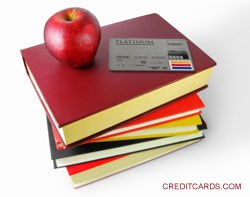Students should consider adding the Financial and Consumer Affairs Authority’s (FCAA) credit card tips to their fall reading list.
“Credit cards can be powerful financial tools when used properly, but when used improperly they can tie people down with debt for years,” FCAA Consumer Credit Division Director Cory Peters said. “It’s important for students to be proactive and learn how credit cards work so they can avoid the common mistakes.”
When choosing their first credit card, students should carefully consider their options.
Interest rates, annual fees and rewards vary between cards. Figure out which card is right for you. It may be worth paying a fee for a lower interest rate or extra rewards if you expect to be carrying a balance or if the value of the rewards outweighs the fee.
After getting a credit card, students should keep the following tips in mind:
Pay your balance on time and in full. If you always do this and don’t take cash advances, you can avoid being charged interest altogether.
Always make at least the minimum payment by the due date. Being late or skipping payments will seriously harm your credit rating.
Avoid cash advances, as they usually have a higher interest rate than purchases made directly with the card and begin accumulating interest right away.
Stay under your card’s credit limit. The penalty for going over the limit can be expensive.
Having a credit card does not mean you have more money. If you can’t afford it without the card, you can’t afford it with the card.
For more helpful information on how to use your first credit card, visit www.fcaa.gov.sk.ca/credittips2015/.




